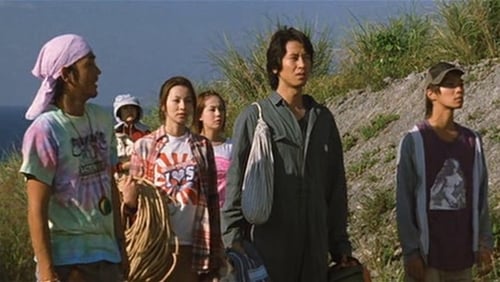
Papajo
X years after the “Shima pshoo” incident, aging Tarugani and Papajo are best friends who live in Patai Village, where those who failed to die continue to exist. When the two find themselves framed as thieves who stole an illegal substance from the local store, they set out on the road, chased by three dripping wet mysterious women.

Ishikawa
Seikichi, makes his living fishing from a small boat off the coast of Okinawa. He and his 12-year-old grandson Akira live in a small, tree-lined village in the northern part of the island which is surrounded by a white-sand beach and plots of pine and flowering bushes. On the cliff that skirts the shore sits an open-air burial ground containing the skull of a kamikaze pilot who was shot down during the last days of World War II. When the wind blows through the bullet hole in the skull, it produces a whistling sound. The locals call it the "Crying Head."

시노하라 테츠오 감독이 다음 세대를 노리는 유망한 젊은 배우 7명을 모아서 만든 마음이 따뜻해 지는 청춘드라마. 본작품으로 데뷰하여 시노하라 감독의 차기작인 에도 출연하는 가오리 리나의 매력과 에서 열연한 나리미야 등의 연기가 눈에 띈다. 도회지로부터 온 유약한 젊은이들이 오키나와의 대자연과 섬 사람들의 온정을 만나면서 성장해 가는 모습을 그리고 있다.

Go Takamine's first theatrical feature is a pioneering work of Okinawan cinema, filmed almost entirely in Okinawan dialect. Taking place shortly before the resumption of Japanese sovereignty over Okinawa, Takamine’s film tacitly addresses the island prefecture's complicated history of occupation and feelings of dislocation through the story of a small community and its preparations for a wedding between a local girl and a Japanese teacher. On the periphery of these events is Reishu (Kaoru Kobayashi), who quits his job on a US military base and uses the extra time to catch snakes and play with ants – and get the bride-to-be pregnant. Takamine’s leisurely-paced film is full of uniquely Okinawan touches that mix in aspects of the island's folklore, accompanied by Haruomi Hosono’s spare and evocative score.



